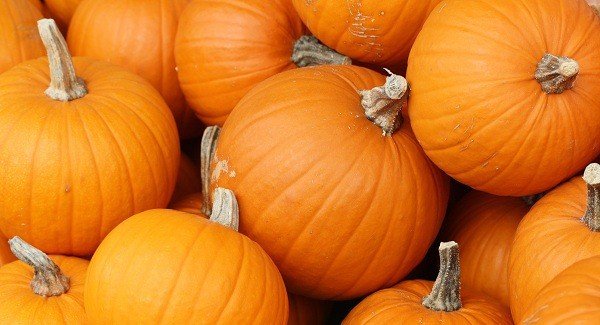Pumpkin

Pumpkin is a bright orange vegetable native to South America. The size of the fruits can reach up to a meter in diameter and weighing more than 200 kg.
The whole inner part of the pumpkin and its seeds are used for food. Its skin is too hard, so it is removed before cooking.
The first historical records of this fruit date back more than 7,000 years. The cultivation of the pumpkin was started by the ancient Indian tribes.
The most suitable conditions for growing this vegetable are in the temperate and subtropical natural zones. The plant is heat-loving, light-loving and requires appropriate irrigation.
With insufficient soil moisture or in cold weather, it dries quickly.
Nutritional value in 100 grams
• Proteins – 1 gram;
• Fats – 0.1 gram;
• Carbohydrates – 4.4 grams;
• Water -91.8 grams ;
• Calorie content – 22 kilocalories;
Pumpkin – beneficial properties
Pumpkin pulp is rich in vitamins /E, A, C, D, F, PP, T and group B /, micro- and macroelements /magnesium, potassium, calcium, iron/, of proteins, vegetable fibers and sugar.
Due to the presence of alkalizing substances, pumpkin is useful for diseases of the gastrointestinal tract, which are accompanied by increased acidity.
The inclusion of this vegetable in the diet helps to treat such diseases as tuberculosis, atherosclerosis, constipation, diabetes, gout and cholelithiasis.
Pumpkin is also a strong diuretic, which is why doctors recommend it for impaired kidney function, heart and swelling during pregnancy.
Nutritionists recommend the vegetable for those who have accumulated extra pounds, because the substances contained in them accelerate the metabolism, remove “bad” cholesterol, and also make the skin more elastic.
When the consumption of pumpkin is combined with physical activity, it prevents the formation of stretch marks and skin relaxation during rapid weight loss.
A pumpkin diet has also been developed.
Pumpkin seeds
Pumpkin seeds are rich in vegetable oils, over 50%, and proteins. They are used to treat liver disease and, due to their high zinc content, for acne on the face and body, and for oily hair and dandruff.
Dried pumpkin seeds have a beneficial effect on the function of the reproductive system, both for men and women.
Pumpkin juice
Fresh pumpkin juice, besides being rich in a number of vitamins and minerals, is also a very good antioxidant.
With an increased risk of flu and colds, it is recommended to drink 200 ml of this juice every morning to strengthen immunity.
Also, fresh from this fruit, due to its composition, is a very good remedy for constipation, hemorrhoids, increased nervous excitement and vomiting due to toxicosis of pregnancy or seasickness.
Pumpkin is also used in cosmetics to make nourishing masks. For oily skin, mash of raw pumpkin /3 tablespoons/, egg yolk and honey is used.
Pumpkin juice can be applied as a toning lotion for the face or as a compress.
Contraindications
In some people, when consuming pumpkin for the first time, adverse gastrointestinal symptoms such as bloating and cramps are possible.
Also, this vegetable should not be eaten by people with diseases of the digestive system, accompanied by low acidity of gastric juice and in severe forms of diabetes mellitus.



